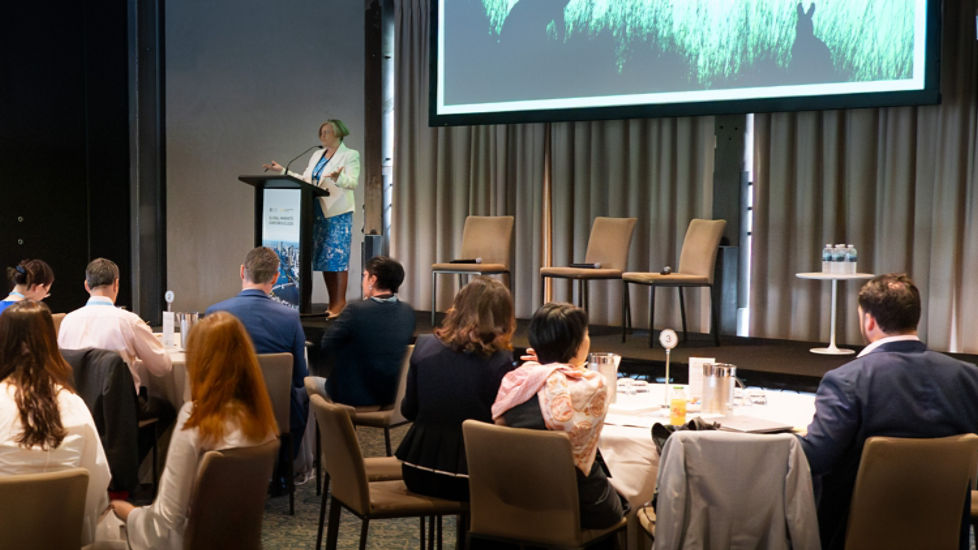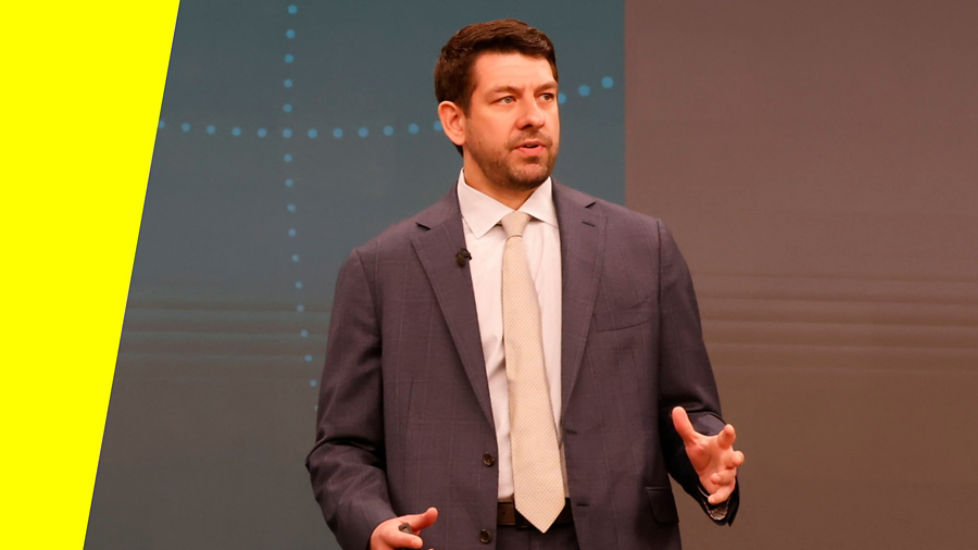For a few years now, the key to adapting to our new world has been a willingness and ability to think outside the box, to be agile, to try new things. For many, it unlocked a skill that is getting a lot of attention: curiosity.
Curiosity is becoming one of the most important qualities in business, says Gauri Bhalla, the founder of design thinking and social entrepreneurship consulting firm, Curious Collective.
“When I work with executive teams, the first thing that people ask me is, ‘Gauri, can you help my people think differently?” The answer is yes – there are practical tools that help people and teams see change as opportunity, rather than to fear the future”, Bhalla recently talked through these tools with the audience at a CommBank Women in Focus event.
So, what is curiosity? “Our definition is the desire to know,” says Bhalla. “It means learning all through your day-to-day activities. You’ve been in a conference or outside with colleagues or at dinner last night; you are not the same as you were 24 hours ago. So the first lesson is to always be curious. Everyday interactions and observations are an opportunity to learn and enjoy seeing the world around you differently”
The link between curiosity and creativity
The next step from curiosity is creativity, and that’s where the innovation happens that can drive businesses to new heights.
“You cannot be creative unless you have been curious,” says Bhalla.
“You can’t open up new possibility unless you’re wanting to think about if there’s something different now. Start with curiosity and creativity will come.”
Bhalla advises clients to differentiate between being curious and needing to look like an expert. She says there’s a tendency to want to provide an answer when you’re asked a question. But curiosity thrives when you don’t know. Always needing to have the answer doesn’t allow for different thinking.
“If you’re going to tell me what to do, we’re going to do the same things we’ve always done and get the same result we’ve always got,” she says. “If you feel like you have to be the expert, that’s going to get in your way.”
Being cynical can also stifle creativity because you’re getting in your own way. By looking at problems with a negative mindset, thinking that you’ve done something before and that something isn’t going to work means that you’re not open to possibility.
Turning her focus to women, Bhalla says women can positively position themselves in a growth mindset in order to let their curiosity flourish, rather than feeling the pressure of needing to look like an expert, or tick off tasks on a huge list. “Growth mindset is, ‘I’m willing to give it a go. I’m willing to try; I want to learn, this is interesting,’ not ‘I know this already’ or, ‘I’m not going to try this.”
A curious mindset enables learning and growth from setbacks
“The WEF Jobs of the Future 2020 report found that creativity is the top skill that CEOs are after,” says Bhalla. “The demand for that skill has intensified in recent times. But you can’t look at someone and just say, ‘be creative.’ It doesn’t work like that.”
One tool Bhalla uses to increase empathy and creativity on the journey to developing curiosity is deep listening. She suggests that in any conversation, rather than thinking of your response to what is being said, slow down, and truly get present. “Get curious about what emotions you can pick up in the conversation, about what might not be being said verbally, about language and body language that you can intuit.
“This is deep empathy. You can simply leave a couple of seconds of silence to hear more, or say to a colleague ‘I’m not going to say much – I really want to hear your perspective’ to make space for you to get curious about another person’s experience. Opening your mindset to different enables you to consider and think about multiple scenarios.”
Having a flexible mindset and focusing on growth opportunities also makes you the kind of person that people want to be around.
Having curiosity also doesn’t mean you have all the solutions. Setbacks and failure are a part of learning and growth. Bhalla says it’s how you handle these failures that will influence your future.
“Failure is the necessary part of learning,” she says. “I might fall over. It doesn’t matter.” So long as you’re learning from the experience. “When we get over this thing, what we do is celebrate effort, not outcome. When you do innovation, you are going to fall over so many times.”
Accepting failure needs to be part of a business’ as well as an individual’s mindset. It’s about focusing on the process rather than the outcomes.
There are other ways a business can create a culture that supports curiosity, such as not overloading people with tactical tasks, giving them time to consider “how” we do not just “what” we do, leading to different ways to address challenges.
This enables what experts call “peak mind” – that comes from being able to get into the right mindset to gather data, be curious, and open to possibility. To see something differently and choose to do things differently. And that’s how individuals and teams thrive in times of change - where others may feel fear, they see opportunity.
Our mindset expert
Gauri Bhalla is the founder of the Curious Collective, an educator and shared value driver. She is a practitioner of lean start up and ‘learn by doing’ methodologies. Her passion is to deliver learning and project results, in the flow of work. Gauri started her career as an accountant and marketer in the corporate world with PwC and WorldCom, then found her vocation in education and has worked for universities including Cambridge, Stanford and the UTS Business School in Sydney as well as designing and running the Experimentation program for CommBank.
Gauri is also Faculty at The School of Life, where she teaches "How to Think Like an Entrepreneur". Gauri finds people irresistibly interesting. She understands the power of continuing education to transform and enable individuals and organisations to fulfill their potential.




